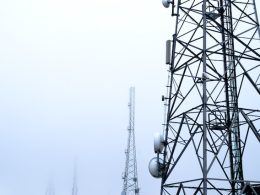Are you ready for lightning-fast internet speeds and seamless communication? The future is here, and it’s all thanks to 5G networks. With the latest technology advancements, we’re seeing a revolution in how Americans communicate with one another. In this blog post, we’ll explore the incredible impact of 5G on our everyday lives and why it’s fast becoming the preferred network for businesses too. So strap in as we take you through everything you need to know about how 5G is changing the game!
What is 5G?
5G is a new generation of cellular network technology that is expected to provide faster download speeds, increased bandwidth and expanded capability than 4G. It will also enable new services such as autonomous driving, smart cities and more immersive mobile experiences.
5G is already being deployed in some parts of the world, including Japan, South Korea and China. The United States is expected to be one of the first countries to commercially launch 5G networks. Sprint and Verizon are both planning to deploy 5G networks by 2020. AT&T plans to launch its 5G network in late 2019.
5G will make it possible to connect devices within close range without lag or hesitation. This could be important for things like self-driving cars, where accurate communication between vehicles and surrounding infrastructure is essential for safety. 5G also has the potential to help reduce energy consumption by streaming videos and other high-bandwidth applications more efficiently than current networks.
Overall, 5G appears to have many advantages over current cellular networks. It should provide faster speeds, better bandwidth capacity and enhanced capabilities for a variety of applications. As 5G deployments commence in more parts of the world, it will be interesting to see how consumers react and what new services become available as a result.
The Benefits of 5G Networks
5G networks will bring about many benefits for both businesses and users.
One of the key benefits of 5G networks is that they will be able to transmit data much faster than current networks. This will allow businesses to keep up with the latest trends and advancements in their respective industries much more quickly, as well as giving users a much smoother experience when using various applications and services. Additionally, 5G networks are also expected to be more reliable than current ones, meaning that there should be less instances of disruption or lag time when conducting business transactions or utilizing various online services.
In terms of security, 5G networks are expected to provide an even more robust level of protection than current ones. This is due to the fact that they will be able to encrypt data in a way that makes it virtually impossible for unauthorized individuals or entities to access it. Additionally, 5G networks are also expected to enable new forms of security features such as self-healing systems and distributed denial-of-service (DDoS) protection measures.
Overall, 5G networks are projected to offer a variety of significant benefits for businesses and consumers alike. By integrating these technologies into their communication infrastructure, organizations can ensure that they remain competitive and ahead of the curve while providing their customers with an enjoyable user experience.
How 5G Networks Are Revolutionizing Communication
5G networks are quickly becoming the next big thing in communication. This new generation of networks has the potential to revolutionize how we use technology, and ultimately how we communicate. Here’s why:
1. 5G Networks Are More Efficient Than 4G Networks
One of the biggest benefits of 5G networks is their increased efficiency. 4G networks were originally designed to handle basic phone calls and text messages, but they’re not as efficient when it comes to transmitting larger files or streaming video. 5G networks can handle these types of transactions much more quickly and efficiently than 4G networks can, which means you’ll be able to watch your favorite TV show or movie with less buffering time and less interruption in your conversation.
2. 5G Networks Are Much Faster Than 4G Networks
Another big benefit of 5G networks is their increased speed. Again, 4G networks were designed for basic phone calls and text messages, but they’re not as fast when it comes to transferring large files or streaming video. 5G networks are much faster than 4G networks, meaning that you’ll be able to download videos or surf the web more quickly without feeling bogged down by laggy performance.
3. 5G Networks Enable Greater Interoperability Between Devices
One of the biggest challenges with using current communication technology is that devices can often be incompatible with one another. For example, if you want to watch
The Limits of 4G LTE Networks
G networks are quickly becoming the go-to choice for communication in the USA. Serving as the backbone of 4G LTE networks, these networks provide superior performance and reliability. That being said, there are some limitations to G networks that should be taken into account when planning your communication strategy.
First and foremost, G networks are not everywhere. While they are prevalent in most major metropolitan areas, they may not be available in all parts of the country. Furthermore, G networks can only travel so far before encountering interference from other wireless devices or infrastructure. As a result, it’s important to plan your communication strategy based on where you will be using it most often.
Additionally, G networks don’t work well in close proximity to each other. If you need to use two devices simultaneously near each other, you’ll need to switch to a different network such as LTE or Wi-Fi. Finally, G networks can only handle a limited amount of data traffic at once. So if you’re expecting significant traffic growth in your organization, you may want to look into switching to a more robust network type such as LTE or Wi-Fi.”
Despite these limitations, G Networks are quickly becoming the preferred option for communication across the United States due their superior performance and reliability…
How to Prepare for 5G Networks
The 5G network is the next generation of wireless technology, and it’s already starting to revolutionize communication in the USA. With 5G, you can expect faster speeds, more uptime, and reduced latency.
Here are some tips on how to prepare for 5G networks:
1. plan your deployment. Don’t wait until your network is ready – start planning now so you don’t have any surprises down the road. Make sure you have enough coverage and that all your devices are compatible with 5G.
2. get started with trials. If you don’t have a full deployment yet, consider using trials to test out the new network before committing to a full deployment. You can find trials near you by searching for “5G Trials” or “5G Services.”
3. be aware of bandwidth limitations. Just like 4G networks, 5G networks will have bandwidth limitations – make sure you know what those limits are and plan your applications accordingly.
4. be prepared for security threats. As with any new technology, there will be security threats associated with 5G networks as well – be prepared to implement measures to protect yourself and your data.
Conclusion
As we enter the age of 5G, it’s clear that the future of communication is here. Not only are 5G networks faster and more reliable than ever before, but they’re also designed to accommodate a greater variety of devices and applications. This means that not only will you be able to stay connected with friends and family more easily, but you’ll also be able to access incredible new services and experiences. So whatever your plans for the future may be, make sure you’re prepared by investing in a 5G device!












